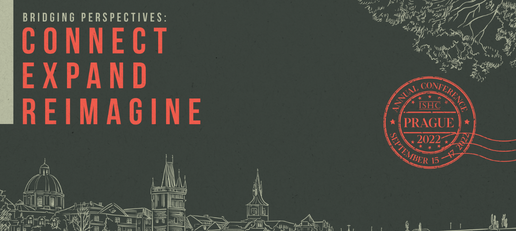
THR's news
Christophe de Bruyn’s Reflections as Co-Chair of the ISHC Annual Conference
From the International Society of Hospitality Consultants (ISHC) conference in Prague one week ago, I would like to share some reflections.
Back to normal?
Our last conference in Europe took place in Vienna back in 2019. Feels like a long time ago, in another life, a life without Covid. Though we organized again a conference in the US in 2021, our non-US members were not allowed to travel. While still dealing with Covid outbreaks, we have learned to live with the pandemic, and we have had a great opportunity to see each other in person. Great feeling!
Conference theme: Bridging perspectives, connect, expand, reimagine
This year’s conference, inspired by Prague’s Charles Bridge, aimed to convey a message of optimism, to create, renew and strengthen human bounds. On the other hand, it reflected the need to understand and navigate through highly uncertain times with so many crisis factors: enduring pandemic, disruption of supply chains, shortage of staff, energy crises in some world regions, raising of interest rates, impact of climate change, etc., and since February 24th, the Ukraine war. It is like the “mother” of storms. How to navigate it and survive?
A sector that is recovering at a fast pace
The program speakers highlighted that tourism and hospitality sector activity is back and strong again, in many cases close to 2019 levels except for Asia, namely China, due to Covid restrictions. In any case, STR data are showing 90% ReVPaR recovery worldwide, which is driven by ADR increase. Inflation is one of the reasons for this increase, paired with a strong demand in the leisure segment.
The luxury segment is the one that has benefited more from this situation. USA hospitality sector has totally recovered 2019 levels, while in Europe, France, Italy, Portugal, and Spain are leading the recovery way.
All the program sessions on the current situation and prospects, whether on a macroeconomic, tourism or hospitality industry level, highlighted this recovery statement. From the demand side, we can speak of a consumer “revenge” for leisure travel, after 2 years of non-travel or limited travel. However, business and MICE travel is not back to the same levels as 2019. People are travelling for business purpose, but there is a notable impact of online meetings that seems to be here to stay, or at least to reduce the need of constant in-person meetings. As to MICE, it is back, but the hospitality industry is seeing more small and medium group meetings than large ones. Nonetheless, 2023 might be the full recovery year in terms of the global performance of these two segments.
The aftermath: A challenging future full of opportunities
Due to the uncertainty of the future and the aforementioned hard facts, there are well-founded doubts whether the demand rebound is consistent, or there will be a downturn again in the last quarter of 2022, or at the beginning of 2023. Inflation, GDP growth and consumer spending capacity are key factors. There is no clear answer to this question. What we can lean so far is the following: there is a mix of broad and narrow trends as to business recovery; recovery evolution is still uncertain; pricing recovery is good; and hospitality sector has shown resilience in one of the most challenging circumstances, a total closure of its activity.
In this post-pandemic environment, the way of a renewed hospitality activity to conduct business is affected by some challenges, including a shortage of staff or higher operating costs, as well as important opportunities such as technology, sustainability, or human resources diversity. These trends are and will be very relevant in the upcoming years and, supported by small- and large-scale innovation, are already being tackled, among others, with:
- Higher flexibility to address workforce hiring and on the job management, thus increasing attraction and retention of staff
- Technology to monitor costs and to enhance guest experience, while increasing the opportunity to spend quality time with the guest
- Increasing sustainability practices in buildings and in hospitality operations, thus reducing the carbon footprint and increasing environmental awareness
- Mixed use and higher use of spaces, diversifying and optimizing performance
Ultimately, this challenging environment pushes hospitality to transform itself faster, as our industry is far behind in terms of innovation in comparison to other relatively close sectors such as cruises or retail, for instance.
Therefore, despite the sector’s uncertain future, I am confident that we will leverage the many opportunities ahead, making the tourism and hospitality industry stronger and more competitive than ever.
Christophe de Bruyn
ISHC member and Co-Chair of the Conference